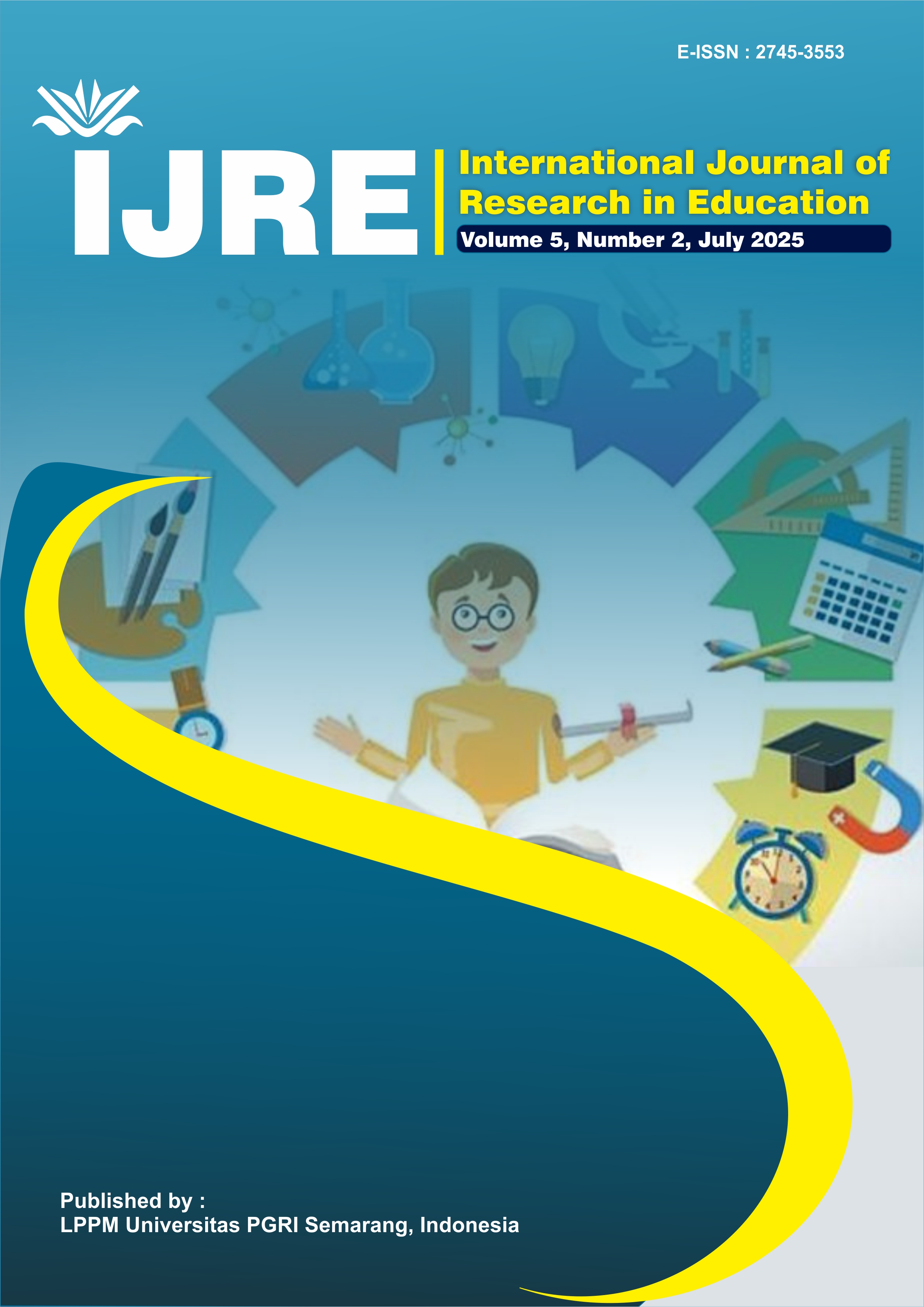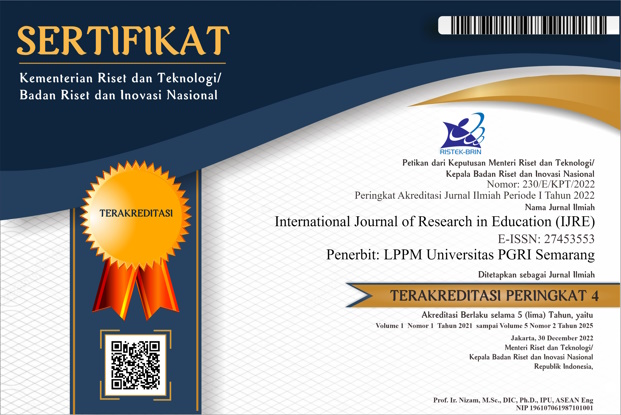A Review of Artificial Intelligence in Language Assessment: Trends, Challenges, and Opportunities
DOI:
https://doi.org/10.26877/5z7t4x18Keywords:
AI (artificial intelligence), language assessment, automatic scoring, educational technology, natural language processing, AI ethics in educationAbstract
The impact of AI on language testing has sparked a major upheaval in education thanks to advances in technology and the need for better testing efficiency. The objective of this review is to study and evaluate what is happening at present, what are the big challenges and where there are opportunities in AI-powered language assessment. The research systematically examines existing studies by employing the PRISMA framework, carrying out an extensive search through academic databases to locate, evaluate, and interpret peer-reviewed articles concerning AI in language assessment. It uses qualitative thematic analysis to integrate key patterns, obstacles, and future prospects. While AI has given us new methods for evaluating languages, problems related to bias, maintaining data privacy, and the importance of human role are still major issues. By covering many aspects, the review gives insights into the developing AI in language testing. It draws attention to how AI may improve accuracy, save time and allow for more assessment on condition that certain difficulties are addressed. According to the study, it is essential to put in a balance between using technology and relying on people for language assessment. By proposing recommendations for future research and practical applications, this review provides actionable insights for educators, policymakers, and developers to make informed decisions about integrating AI into language assessment. It emphasizes the importance of designing equitable, transparent, and pedagogically sound AI systems, thereby shaping the responsible and effective use of AI in educational contexts.
References
Blodgett, S. L., Barocas, S., Daumé, H., & Wallach, H. (2020). Language (Technology) is Power: A Critical Survey of “Bias” in NLP. http://arxiv.org/abs/2005.14050
Borna, M. R., Saadat, H., Hojjati, A. T., & Akbari, E. (2024). Analyzing click data with AI: implications for student performance prediction and learning assessment. Frontiers in Education, 9. https://doi.org/10.3389/feduc.2024.1421479
Bulut, O., & Beiting-Parrish, M. (2024). The Rise of Artificial Intelligence in Educational Measurement: Opportunities and Ethical Challenges. Chinese/English Journal of Educational Measurement and Evaluation, 5(3). https://doi.org/10.59863/MIQL7785
Chen, C., Tang, M., & Yang, A. (2024). Progress in a multimodal learning evaluation based on artificial intelligence. Frontiers in Educational Research, 7(7). https://doi.org/10.25236/fer.2024.070704
Cottier, B., Rahman, R., Fattorini, L., Maslej, N., Besiroglu, T., & Owen, D. (2024). The rising costs of training frontier AI models. http://arxiv.org/abs/2405.21015
Cotton, D. R. E., Cotton, P. A., & Shipway, J. R. (2024). Chatting and cheating: Ensuring academic integrity in the era of ChatGPT. Innovations in Education and Teaching International, 61(2), 228–239. https://doi.org/10.1080/14703297.2023.2190148
Floridi, L., Cowls, J., Beltrametti, M., Chatila, R., Chazerand, P., Dignum, V., Luetge, C., Madelin, R., Pagallo, U., Rossi, F., Schafer, B., Valcke, P., & Vayena, E. (2018). AI4People—An Ethical Framework for a Good AI Society: Opportunities, Risks, Principles, and Recommendations. Minds and Machines, 28(4), 689–707. https://doi.org/10.1007/s11023-018-9482-5
Godwin-Jones, R. (2024). AI and VR converge: The future of language learning in an emerging metaverse.
Guo, H., Johnson, M. S., Ercikan, K., Saldivia, L., & Worthington, M. (2024). Large-Scale Assessments for Learning: A Human-Centred AI Approach to Contextualizing Test Performance. Journal of Learning Analytics, 11(2), 229–245. https://doi.org/10.18608/jla.2024.8007
Gutiérrez, L. (2023). Artificial Intelligence in Language Education: Navigating the Potential and Challenges of Chatbots and NLP. Research Studies in English Language Teaching and Learning, 1(3), 180–191. https://doi.org/10.62583/rseltl.v1i3.44
Hooda, M., Rana, C., Dahiya, O., Rizwan, A., & Hossain, M. S. (2022). Artificial Intelligence for Assessment and Feedback to Enhance Student Success in Higher Education. Mathematical Problems in Engineering, 2022. https://doi.org/10.1155/2022/5215722
Ifenthaler, D. (2022). Automated Essay Scoring Systems. In Handbook of Open, Distance and Digital Education (pp. 1–15). Springer Nature Singapore. https://doi.org/10.1007/978-981-19-0351-9_59-1
Jose, D. (2024). Data Privacy and Security Concerns in AI-Integrated Educational Platforms. Recent Trends in Management and Commerce, 5(2), 87–91. https://doi.org/10.46632/rmc/5/2/19
Lai, C., & Zheng, D. (2018). Self-directed use of mobile devices for language learning beyond the classroom. ReCALL, 30(3), 299–318. https://doi.org/10.1017/S0958344017000258
Luckin, R., Holmes, W., Griffiths, M., & Pearson, L. B. F. (2016). Intelligence Unleashed An argument for AI in Education.
Merkviladze, M. (2024). Integration of Automated Feedback Tools in EFL Academic Writing Classes: Teachers’ Perspective. In Journal of Education in Black Sea Region (Vol. 10).
Owan, V. J., Abang, K. B., Idika, D. O., Etta, E. O., & Bassey, B. A. (2023). Exploring the potential of artificial intelligence tools in educational measurement and assessment. In Eurasia Journal of Mathematics, Science and Technology Education (Vol. 19, Issue 8). Modestum LTD. https://doi.org/10.29333/ejmste/13428
Shermis, M. D., & Burstein, J. (2013). Handbook of Automated Essay Evaluation.
Wei, L. (2023). Artificial intelligence in language instruction: impact on English learning achievement, L2 motivation, and self-regulated learning. Frontiers in Psychology, 14. https://doi.org/10.3389/fpsyg.2023.1261955
Zawacki-Richter, O., Marín, V. I., Bond, M., & Gouverneur, F. (2019). Systematic review of research on artificial intelligence applications in higher education – where are the educators? In International Journal of Educational Technology in Higher Education (Vol. 16, Issue 1). Springer Netherlands. https://doi.org/10.1186/s41239-019-0171-0
Zhang, K., & Aslan, A. B. (2021). AI technologies for education: Recent research & future directions. In Computers and Education: Artificial Intelligence (Vol. 2). Elsevier B.V. https://doi.org/10.1016/j.caeai.2021.100025



